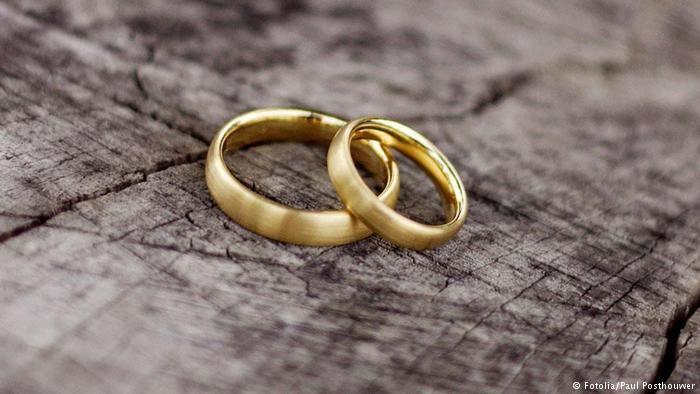Making the Ms. a hit
 Many of the women who live and work in English-speaking environments probably don’t give too much thought these days to o the simple two-letter title that often precedes our names on official letters and envelopes.
Many of the women who live and work in English-speaking environments probably don’t give too much thought these days to o the simple two-letter title that often precedes our names on official letters and envelopes.
I’m talking about the “Ms.”
I was first introduced to this title back in the mid-80s during an English class at high school when we were learning the basics of official letter writing. Our teacher explained that the use of Ms. was considered less presumptuous than Miss or Mrs., which both allude to a woman’s marital status.
The argument was that the use of Ms. underscored the fact that women are their own entities, and that marital status is irrelevant when it comes to the workplace.
At age 15, I was sold. Looking back, I can’t quite explain it but I guess I simply liked the fact that I had a title that was solely mine. Furthermore, coming from an Asian community where the role of fathers and husbands is often intertwined with the “guardianship” of women, it was liberating to have a title that politely suggested I was beholden to neither.
 So, it was with much interest that I read the recent obituaries honoring the American feminist Sheila Michaels, who helped put this honorific on the map.
So, it was with much interest that I read the recent obituaries honoring the American feminist Sheila Michaels, who helped put this honorific on the map.
As with most inspiring stories, it began simply – this time with an address label.
It was the early 1960s and Michaels was sharing an apartment in Manhattan, New York with a friend who had subscribed to a Marxist magazine. One day, Michaels noticed that the magazine addressed her friend as “Ms”. She pointed out this “typo” to her friend who told her that there was no mistake. Ms. was simply a neutral title. This inspired Michaels to make the title mainstream.
In 2000, she revisited this turning point in an interview with the Japan Times and said that her first reaction was: “Wonderful. Ms is me.”
The title actually had its genesis at the turn of the 20th century. According to the Oxford English Dictionary, an anonymous writer in The Sunday Republican, a local newspaper in Springfield, Massachusetts, suggested a new title for women in 1901.
 “Every one has been put in an embarrassing position by ignorance of the status of some woman. To call a maiden Mrs. is only a shade worse than to insult a matron with the inferior title Miss. Yet it is not always easy to know the facts,” wrote the writer.
“Every one has been put in an embarrassing position by ignorance of the status of some woman. To call a maiden Mrs. is only a shade worse than to insult a matron with the inferior title Miss. Yet it is not always easy to know the facts,” wrote the writer.
So s/he suggested “a more comprehensive term which does homage to the sex without expressing any views as to their domestic situation.” With this “simple” and “easy to write” title, a tactfully ambiguous compromise between Miss and Mrs., “the person concerned can translate it properly according to circumstances.”
There was even a helpful hint on how to pronounce this new word: “For oral use it might be rendered as ‘Mizz,’ which would be a close parallel to the practice long universal in many bucolic regions, where a slurred Mis’ does duty for Miss and Mrs. alike.”
Perhaps it was too revolutionary as the term failed to gain traction at the time.
It would take seven decades and a feminist who thought she’d stumbled on a typo for it to be resurrected and installed as a given in current English usage.
 Michaels later recalled that the term resonated because she was a feminist and born out of wedlock: “There was no place for me. No one wanted to claim me and I didn’t want to be owned. I didn’t belong to my father and I didn’t want to belong to my husband – someone who could tell me what to do. I had not seen very many marriages I’d want to emulate – the whole idea came to me in a couple of hours. Tops,” she told the Guardian in 2007.
Michaels later recalled that the term resonated because she was a feminist and born out of wedlock: “There was no place for me. No one wanted to claim me and I didn’t want to be owned. I didn’t belong to my father and I didn’t want to belong to my husband – someone who could tell me what to do. I had not seen very many marriages I’d want to emulate – the whole idea came to me in a couple of hours. Tops,” she told the Guardian in 2007.
Thus began a quest to have the word on everyone’s lips. There weren’t many takers though – even amongst her feminist friends – given the overwhelming belief that there were bigger issues to fight for. But she used the term in 1969 during a radio interview that was heard by none other than Gloria Steinem, who was scouting around for a name for her feminist magazine. “Ms” hit the stands in 1972 and the first edition sold out in eight days.
Soon afterwards, a New York congresswoman introduced legislation that gave women the prerogative not to disclose their marital status on federal forms.
 In 1986, the New York Times officially adopted the honorific. An editor’s note read: “Until now ‘Ms’ had not been used because of the belief that it had not passed sufficiently into the language to be accepted as common usage. The Times now believe that ‘Ms’ has become part of the language and is changing its policy.” Just about the same time, half a world away, an English teacher in a southern state of Malaysia instructed her students to use “Ms” when addressing women in official correspondence.
In 1986, the New York Times officially adopted the honorific. An editor’s note read: “Until now ‘Ms’ had not been used because of the belief that it had not passed sufficiently into the language to be accepted as common usage. The Times now believe that ‘Ms’ has become part of the language and is changing its policy.” Just about the same time, half a world away, an English teacher in a southern state of Malaysia instructed her students to use “Ms” when addressing women in official correspondence.
Evidently, the early history of the Ms. was one of hit and misses. Yet, we must credit Ms Sheila Michaels for her tenacity in ensuring that the Ms. triumphed in the end.
Author: Brenda Haas
Editor: Anne Thomas
_____
WTO RECOMMENDS
The expat wife: ‘What every women needs to know before she marries a foreigner.’
I just knew I had to follow the smile in his golden eyes into the sunset. It involved jumping on a plane, while barely knowing the inner workings of his soul or where on Google’s map he lived. It involved a great deal of bravery, a trusting heart, money I wasn’t sure I had, faith the size of a mustard seed and a spirit of adventure. (From June 20, 2017)
Sometimes, I miss being single!
‘Singleton’ is not a privilege given to many women in South Asia. We are ‘protected’ closely by our families and then given away in marriage to the man who will ‘protect’ us. We grow up in one nest and then just before we get a chance to fly, the wings are clipped a little and we settle into another nest. (From March 27, 2015)
“Lady-oriented” films for your viewing pleasure
India’s Central Board of Film Certification (CBFC) made headlines this week after finally lifting its ban on the theatrical screening of “Lipstick Under My Burkha”. The film opens in the cinemas on 21 July. Directed by Alankrita Shrivastava, it follows four Indian women and their quiet acts of rebellion against cultural, religious and societal restrictions. (From August 5, 2017)






